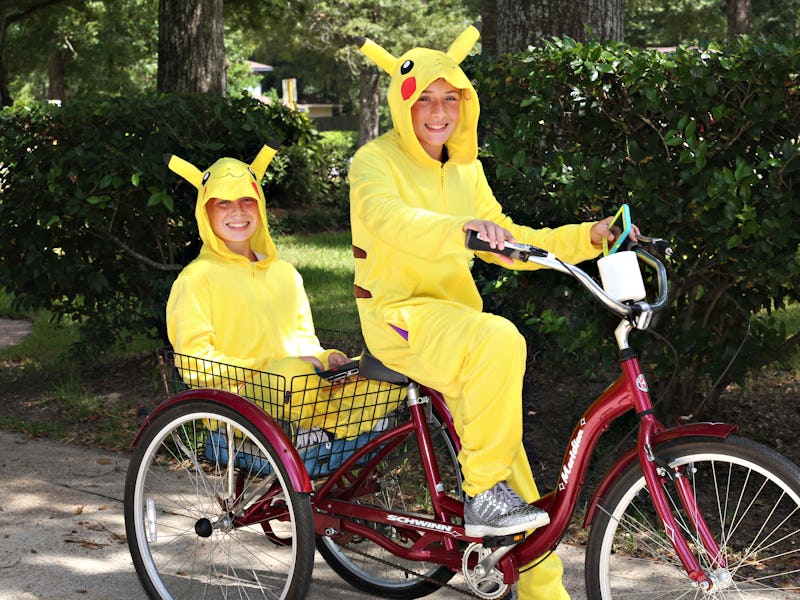Have you ever hung out with a Pokémon Go player? Have you seen the kind of smile a scampering Rapidash can conjure on a human face? Have you felt the warmth emanate from a freshly minted group of pals, all chasing the same shiny red Gyarados? If you haven’t, then you’re missing out. According to a new psychology study, Pokémon Go players don’t just seem friendly and happy, they are.
At least, that’s the conclusion a team of University of Wisconsin-Madison media researchers came to after tracking the emotional, social, and fitness experiences of 400 people three weeks after Pokémon Go launched in August 2016. A big chunk of that group — over 40 percent — turned out to be Pokémon Go players. And it turns out that those people were also much more likely to be happy.
The researchers, led by James Alex Bonus, a graduate student studying educational media, chalk the good vibes up to the social connections people naturally make while playing the game. Pokémon Go, unlike its original Game Boy predecessor, is not a game to be played solo — and that seems to be a good thing, the researchers suggest in their new Media Psychology paper.
“The more people were playing, the more they were engaging in behaviors that reflected making new connections — making Facebook friends, introducing themselves to someone new, exchanging phone numbers with someone, or spending more time with old friends and learning new things about them,” Bonus said in a statement.
Pokémon Go = new friends and happiness
In the study, the researchers explain that the study participants who reported playing Pokémon Go were more likely to be the same people who reported “positive life experiences,” like “increased positive affect, nostalgic reverie, friendship formation, friendship intensification, and walking.”
The link between these good things and playing Pokémon Go will be pretty self explanatory if you’ve ever played Pokémon Go: Your heart beats a little faster. You’re out in the sunshine. You’re literally rubbing elbows with a bunch of like-minded strangers who just want to catch them all. And even if all your Pokéballs miss, it gives you a really good excuse to strike up a friendship with total randoms.
The researchers realized that, to some people, that situation might seem scary: People with social anxiety, who tend to avoid interaction with strangers, wouldn’t be expected to be into such a social game. But their Pokémon Go findings seemed to thwart these expectations, too — the data showed that people who showed signs of social anxiety weren’t any less likely to play the game.
Bonus chooses to see his study results as a sign that not all video games are bad. “We don’t look at media this way that often, but maybe we should,” he said. “We often focus on media violence and aggression and hostility, but there are opportunities where media is contributing to good life experiences.”
Good life experiences is an understatement: Pokémon Go has already spurred sexual relationships, boosted human health, and brought people to church. Sure, it’s been criticized for failing to help alleviate small-town loneliness and for making parties suck, but if it can make you smile like you’ve just mega-evolved a Mewtwo, it definitely can’t be a bad thing.
